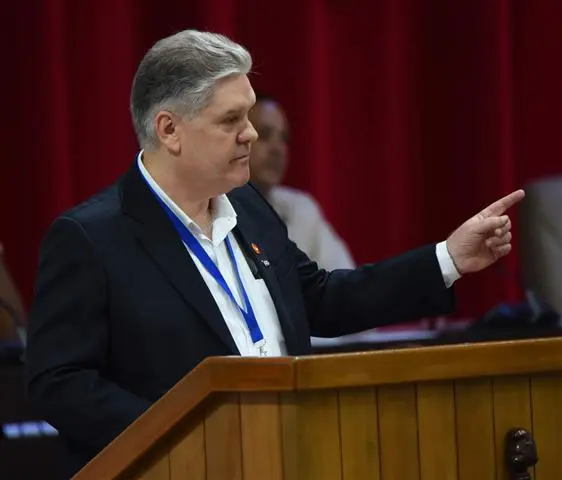Deputy Prime Minister and Minister of Economy and Planning, Alejandro Gil, said Thursday that Cuba has possibilities of fulfilling the economic plans drawn up for 2023, although it must increase agricultural production and face inflation.
Addressing the deputies of the National Assembly of People’s Power (Parliament), Gil informed that at the end of April, exports of goods and services reached 866 million dollars; 23.6 million below what was projected in the stage.
Tourism, one of the main sectors that generate foreign currency for the country, stood at 28 percent of the annual plan in that period, and although it shows a gradual and progressive recovery, it must continue working on the rescue of issuing markets and other aspects, said the Minister of Economy.
He recalled that even though on May 3rd the Caribbean nation reached one million visitors, the intention this calendar is to receive more than three million.
He commented that the implementation of the exchange market as from August 2022, although limited, has allowed the reactivation of productions that were paralyzed, such as some of the electronic industry, cleaning products for the basic food basket and prioritized agricultural items.
Progress is also being made in the expansion of digital operations, a necessity in view of the lack of paper currency.
Still far from what the island needs, but with a positive sign, Gil mentioned that more than 80 percent of the state-owned companies show a favorable result in the first four months of the year.
In this sense, he highlighted the decrease of those with losses, 126 less when compared to the same period of 2022, but it should not be forgotten that 285 still do not operate with liquidity.
He also highlighted that the national electric power system is improving with respect to the previous calendar, with mostly planned affectations, designed to be able to assume in better conditions the demands of the summer.
However, he added, diesel has been overconsumed for generation, which has affected industries, transportation, agriculture and other economic scenarios.
It is also negative that the composition of the energy matrix continues to be unfavorable, with only five percent based on renewable sources.
He mentioned that the country is making progress in investments in the hydraulic sector, steel production and transportation, among other areas; however, a defining aspect is the attention to the fiscal deficit, which currently exceeds 32,700 million pesos (around 1,362 million dollars).
Macroeconomic stabilization is moving through the gradual reduction of this deficit, he stressed, as well as through the creation of a new mechanism for managing the country’s foreign currency liquidity.
This last element should make it possible to overcome the limitations of the current exchange control system, in addition to creating conditions for its financing and achieving greater integration among economic actors.
These are some of the possibilities of fulfilling the economic plans drawn up for 2023, although it must increase agricultural production and face inflation.
With information from Prensa Latina
- Holguin Contributes to Plant Species Conservation - 14 de July de 2025
- Week of Legislative Debates Begins in Cuba - 14 de July de 2025
- Raúl Rodríguez Peña, a communications icon in Holguin - 14 de July de 2025

